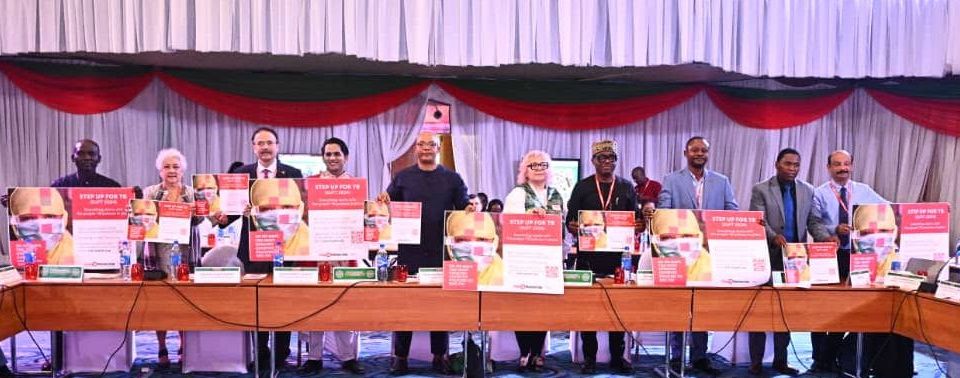The next Stop TB Board meeting will be held in September 2025 in Washington, DC
GENEVA: The 38th Stop TB Partnership Board Meeting concluded on December 14, 2024, in Abuja, Nigeria. For a week, the Nigerian capital was the epicenter of smart engagement and planning for TB response in Nigeria, Africa, and the world for 2025 and beyond. The week included, in addition to the 3 day Board meeting, a high-level political leadership event co-hosted by the First Lady of Nigeria and TB champion, H.E. Senator Oluremi Tinubu, and the Stop TB Partnership.
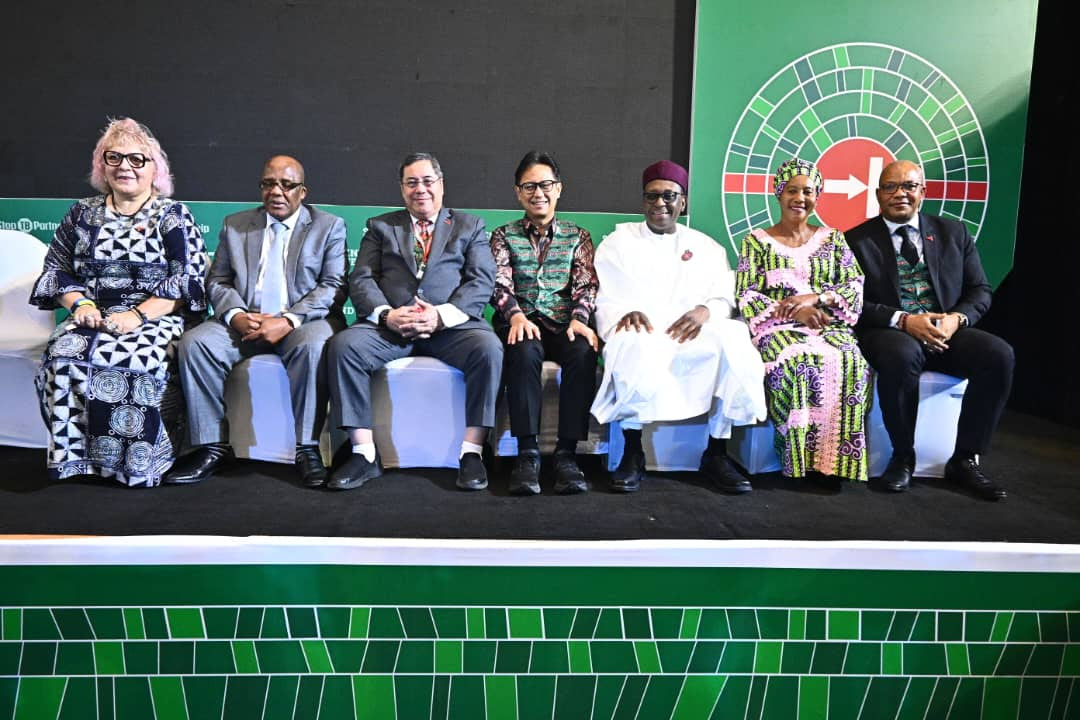
In addition, the packed week also included an African High-Level Dialogue on TB financing in the region – co-hosted by the African Union and the Stop TB Partnership, the Nigeria TB 2024 International Conference, and the Africa Parliamentarians High-Level Summit. People from 63 countries worldwide were present in Abuja throughout the different events, representing governments, parliaments, TB survivors, communities, civil society, researchers and innovators, financial institutions, UN organizations, the African and European Union, foundations, and influencers.
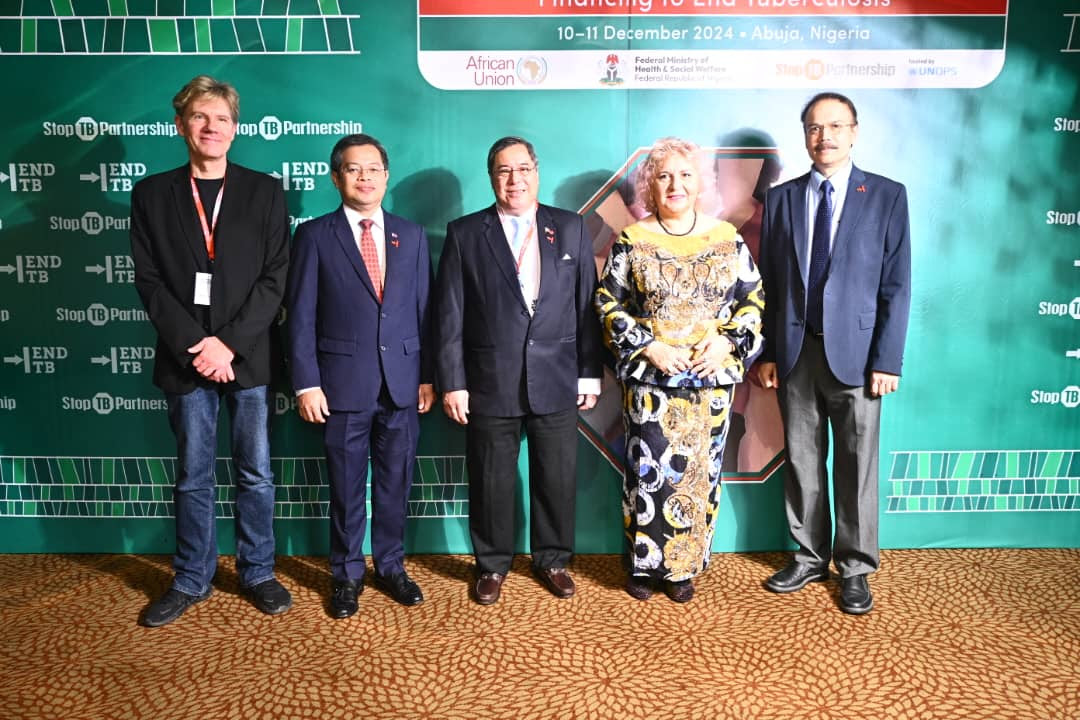
Robust discussions drew from impactful presentations and truthful and timely interventions by members were driven largely by some of the most influential and innovative global leaders in health namely, the Coordinating Minister of Health and Social Welfare of Nigeria - Hon. Dr. Mohammed Ali Pate, the Minister of Health of Indonesia - Hon. Mr. Budi Gunadi Sadikin, the Minister of Health of South Africa - Hon. Dr. Aaron Motsoaledi, and the incoming Stop TB Partnership Board Chair, 2025 President of the World Health Assembly, and Secretary of Health of The Philippines - Hon. Dr. Teodoro Herbosa.
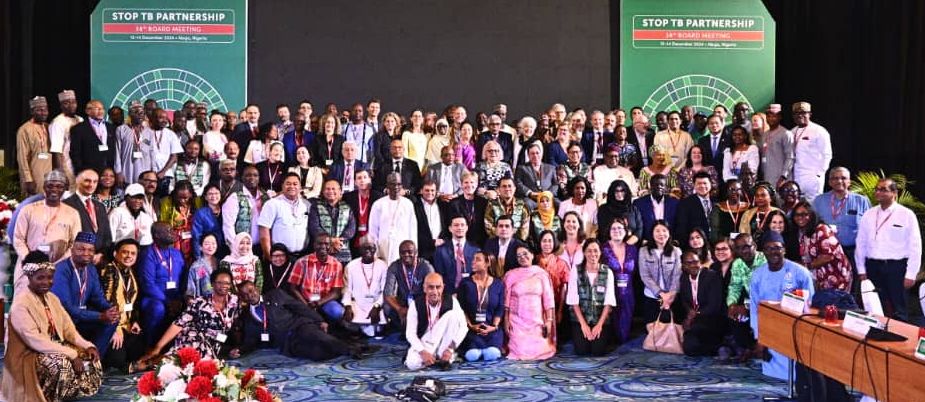
Outgoing Stop TB Chair and Minister of Health and Family Welfare of India, Dr. Jagat Prakash Nadda addressed the Board Meeting virtually. At the same time, Deputy Minister of Health and Social Protection of the Population of Tajikistan - Hon. Abdukholik Amirzoda, Deputy Minister of Health of Malawi - Hon Halima Alima Daud and Director of International Cooperation of Peru, Dr Victor Yosef Melt Campos were able to participate during key sessions of the meeting.
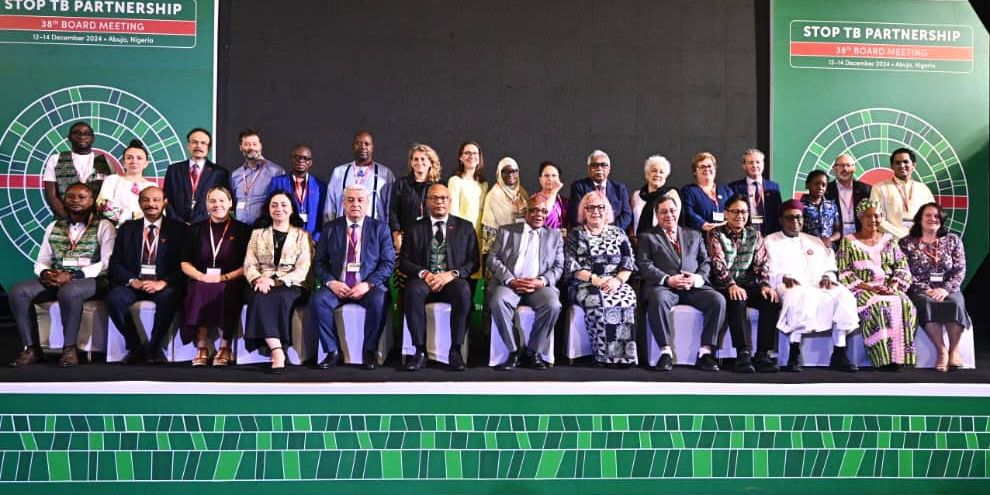
Board members also benefited from inputs from guest speakers including, European Investment Bank Vice President Thomas Östros, Copenhagen Consensus Center President Bjorn Lomborg, Head of the Center for Nutrition Studies at Yenepoya Anurag Bhargava, President and CEO of Nutrition International Joel Spicer, World Food Programme Country Director David Stevenson, and Chairperson of NEAPACOH, Chair of chairs Lesotho Parliament and Chairperson of Health Committee Lesotho Parliament, Hon Mokhothu Makhalanyane as well as several of TB REACH and CFCS grantees.
The Readout and Decision Pointsfrom all the meetings and discussions highlight the need to secure increased resources for the TB response and the renewed manner in which the funding can be identified and used for TB interventions, scale-up of new tools, research, and development. The political and economic changes happening at the global and regional levels, as well as the varied approaches to financing for health and development observed at the national level in many countries, are the main parameters that will influence the “big reset” in future financing for health.
The deliberations during the Board meeting emphasized the understanding and need for the governments and leaders of TB high-burden Countries to own their health challenges, understand the diseases that kill and affect most of their people including economically, and identify concrete solutions to increase the budget available for the TB response in their countries through strategic thinking and solutions. All ministers of health present and governments shared their methods and thinking around increasing the funding for TB from 2025 onwards.
The Board members explored emerging evidence on TB stigma and the innovative and constructively disruptive interventions derived from stigma hackathons that will respond to this challenge. The Board members discussed the best way to further define UNHLM TB-related stigma targets and necessary support to countries to scale up efforts to end TB-related stigma and discrimination, including leveraging Challenge Facility for Civil Society.
During the TB vaccine session, the Stop TB Partnership continued its efforts to convene key stakeholders and partners to ensure the TB and vaccine communities at large were continuously inspired to move toward “action over words” by Hon. Budi Gunadi Sadikin, Minister of Health of the Republic of Indonesia, as well as by learning about the strong commitment for the development of TB vaccines from Thomas Östros, Vice-President of the European Investment Bank. The Board also heard real-time updates related to the development of TB vaccines from Gates Foundation MRI, IAVI, Serum Institute of India, and BioNTech, as well as how countries, like South Africa and India, are planning for the delivery of these vaccines. The Secretariat, now with the Board’s approval, will continue to support creating the enabling environment, together with their partners, for the concrete and practical development and delivery of a TB vaccine by 2028.
The Stop TB Board received for the first time, information and suggested actions for engagement on TB Nutrition and agreed on the advocacy actions for 2025.
In one of the most hope-giving sessions, 11 innovators from across the African continent shared their work and results with the Board. The presentations included the impact of TB REACH work that has been providing new technology including Starlink, portable chest x-ray and AI to hard-to-reach and vulnerable populations; showing how pooling sputum can provide rapid molecular testing to 50% more people for the same amount of money and save time; deployment and evaluation of several new tests for TB infection; and highlights how community engagement is being used to put large numbers of household contacts of people with TB on preventative treatment. The session raised the level of energy and hope towards ending TB to the highest ever as the impact of the local innovators was on full display and the Board could see the future possibilities of the work.
The High-Level Africa Dialogue on Financing to End TB, hosted by Stop TB and the African Union, brought together government representatives, Africa CDC, Chairs of Parliamentary Health Committees from TB high-burden countries, members of the Africa Parliamentary TB Caucus as well as Global and National TB Programs, civil society, and communities. Over two days, participants discussed funding for TB prevention, diagnosis, and treatment. The participants jointly issued the Abuja Statement on Financing to End TB. They committed to raising awareness among Heads of State and Government about national TB challenges, gaps, and responses while advocating for increased domestic financing to end TB.
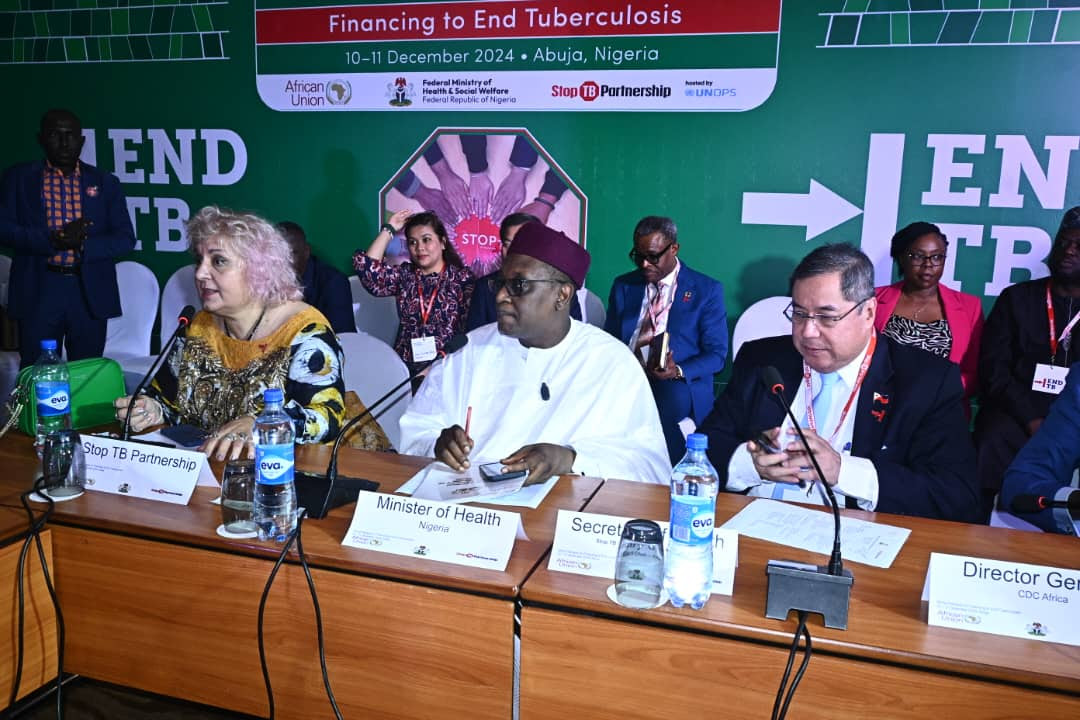
During the week, the Community Award, an annual prize established between Stop TB and Humana People to People, recognizes and supports excellence in advancing an equitable, rights-based, stigma-free, and gender-sensitive TB response. The prize is specifically aimed at the efforts of grassroots, advocacy, and engagement initiatives from TB high-burden countries. Click here to read more about the winners of the 2024 Community Award.
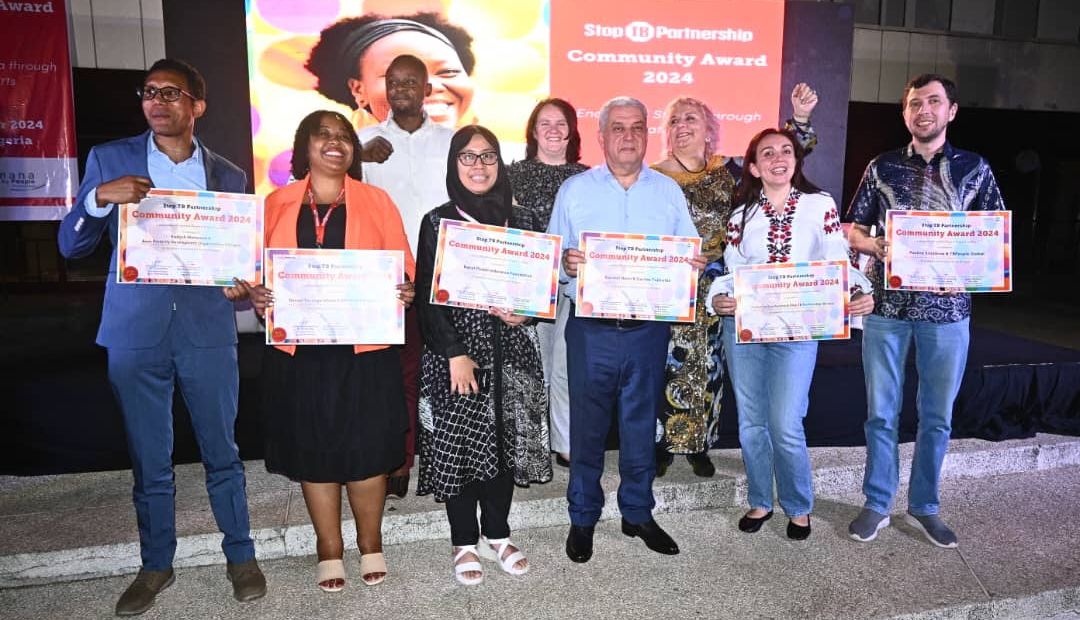
With 19 million USD in available funding, Stop TB Partnership launched the largest-ever call for Challenge Facility for Civil Society proposals. With the continued generous support from USAID and L’Initiative implemented by Expertise France, the Stop TB Partnership will continue its support to organizations of people affected by TB and civil society organizations to reduce barriers to quality TB care and support services to end TB by 2030. This will be achieved by securing political will, reducing the TB financing gap, increasing demand for new tools and approaches, enhancing ambition and accountability, strengthening engagement of key partners and establishing supportive legal and policy environments. For more information see Challenge Facility for Civil Society Round 13: Call for Proposals | StopTB Partnership
A key report highlighting the current funding situation in TB R&D was also launched during the Board Meeting. The Report titled “Tuberculosis Research Funding Trends 2005—2023” assesses the global state of TB R&D and it is based on a survey of biomedical research funders conducted by TAG with support from the Stop TB Partnership. Click here to access and download the report.

At the final session, the Stop TB Partnership unveiled the 11th edition of the Step Up for TB (SUFT) survey report, providing a detailed analysis of TB policy landscapes across 43 out of 49 high-burden countries. The 2024 survey assessed 29 key policy areas and 70 prioritized indicators in diagnostics, treatment, care, prevention, and finances. The findings are presented through country factsheets, trend lines, and an interactive map, allowing users to track country and regional progress over time. Click here for more details on SUFT.
